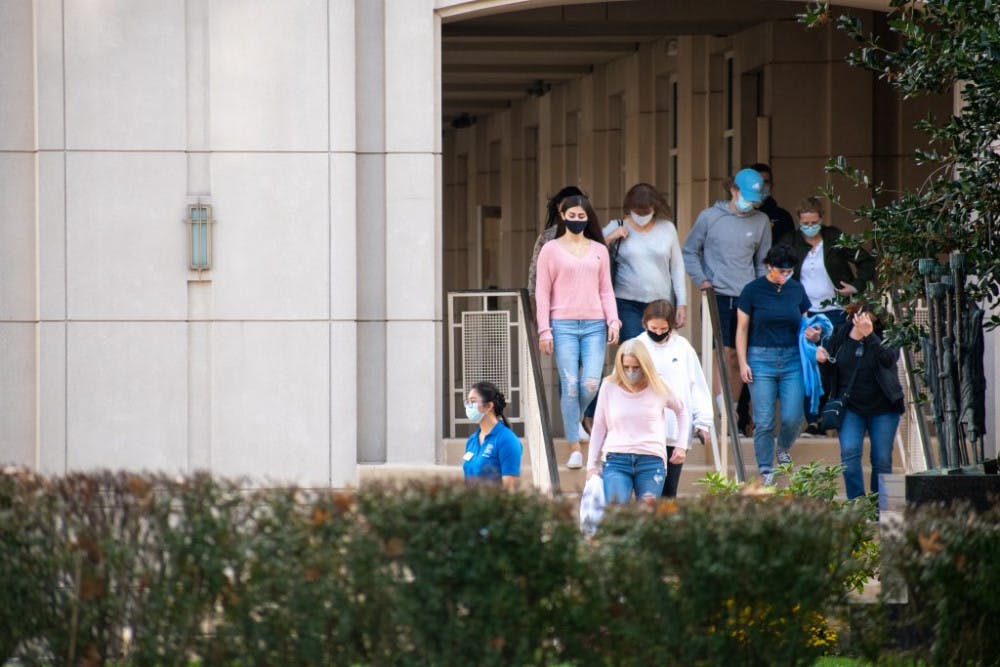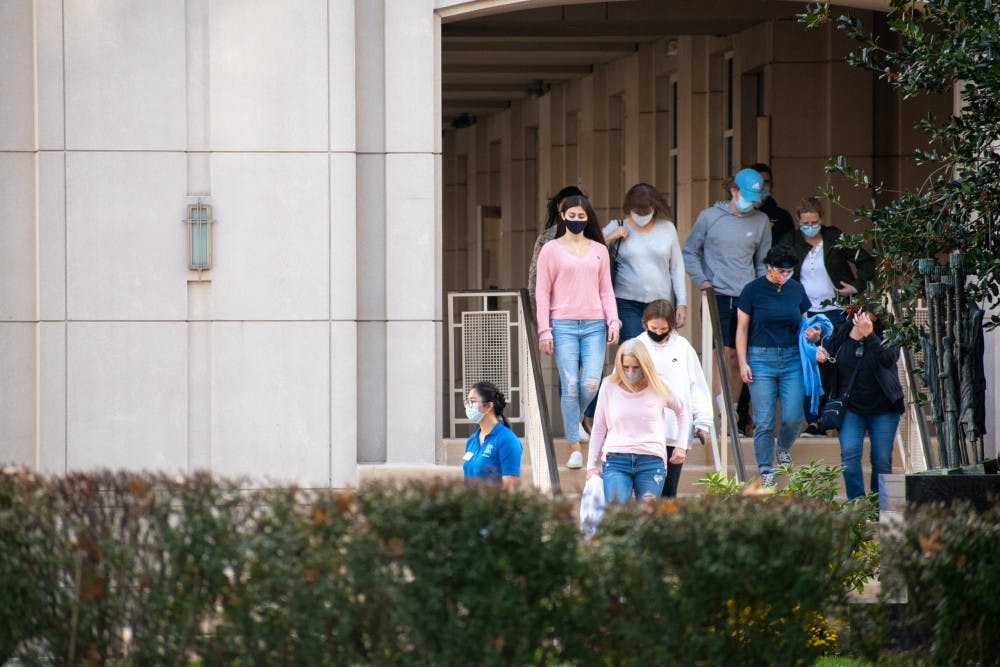Seton Hall reported six new cases of COVID-19 on Friday, bringing the University’s total cases since the pandemic began to 36. Twenty-nine cases were reported since the fall semester began, with 19 cases — nearly two-thirds of the semester’s total — reported in the past week alone.
The six new cases mark the fourth consecutive day that the University has reported an increase in cases.
According to the Health Intervention Communication Team’s COVID-19 dashboard, the new cases were detected via contact tracing. It is not clear which case or cases these were connected to.

On Tuesday and Wednesday, the University detected five cases, respectively, four of which were related.
“It’s disappointing that we have [cases] on campus, but at the same time I’m glad we’re catching them,” Timothy Dziekan, a sophomore political science major, said.
Dziekan, whose brother attends a school with more rigorous coronavirus testing protocols, said he was surprised at the University’s initial testing procedure.
The University began random surveillance testing of resident students on Sept. 28, after a Setonian analysis showed that Seton Hall lagged behind other midsize Catholic universities in terms of daily testing.
Twenty-three of the fall semester’s 36 cases were reported after random testing began, though most of the cases were off campus, including the five student cases reported Friday.
“I was really surprised we didn’t have that kind of [random surveillance] program until a couple weeks ago,” Dziekan said. “You’d think that would be important to have something to monitor the ongoing cases.”
Cassandra Rudderow, a sophomore biology major, said she hopes the increased testing will complement the Seton Hall Pledge to prevent further spread of the virus.
“Although there was a delay in [surveillance] testing, I hope that from here on out testing remains constant,” Rudderow said. “It is ultimately our choice whether we choose to align our thoughts with our actions and to take safety of our school community into account. I hope that we, as a whole school, make wiser choices.”
Kyle Penny, a senior economics major, said he is not surprised by the increase in cases.
“I think that if we are to avoid a mass spread of this virus, the University will need to rigorously pursue and enforce contact tracing and isolation measures,” Penny said. “Students also need to be aware of the increased risk of infection on campus and take every necessary precaution to protect themselves. It is important that we do not let our guard down, especially now.”
Brigid Benko, a sophomore social work major, also said she was unsurprised by the increase in cases.
“What’s more surprising and shocking to me is that the number of [students] who have tested positive is so low, especially considering I’ve seen students that live on campus who have been going to parties,” Benko said. “It makes me question whether they are adequately testing students or if students are lying about testing positive or showing positive symptoms.”
Benko said that while many are adhering to the Seton Hall Pledge, she thinks greater accountability is needed, including for commuters.
“I’m not sure that SHU’s reliance on [the Pledge] is enough, given that cases are drastically increasing,” she said. “There needs to be stronger accountability towards students that are consistently leaving campus and coming back without having to get tested.”
Of the 20 student cases reported since move-in, all but three lived off campus, excluding cases where the individual’s place of residence was not made clear by the Health Intervention Communication Team.
Sean Keegan, a junior visual and sound media major, called the rise in cases “inevitable” considering the risk of exposure off campus.
“Even when everybody’s being safe, there’s still that risk of exposure,” Keegan said. “I’m glad we’re on campus, but I don’t think it’s much of a surprise to anybody that we’re starting to see cases spring up.
There’s so much we do besides just go to the caf, go to class. Outside those times, the University isn’t going to have a lot of control.”
Jenna Mustafa, a sophomore biology major, said Seton Hall should consider more drastic responses.
“Given the spike in cases, I think Seton Hall should take additional measures and possibly shut back down,” Mustafa said. “The safety of the students should be a priority of the school.”
Daniel O’Connor can be reached at daniel.oconnor1@student.shu.edu. Find him on Twitter @itsDanOConnor.





